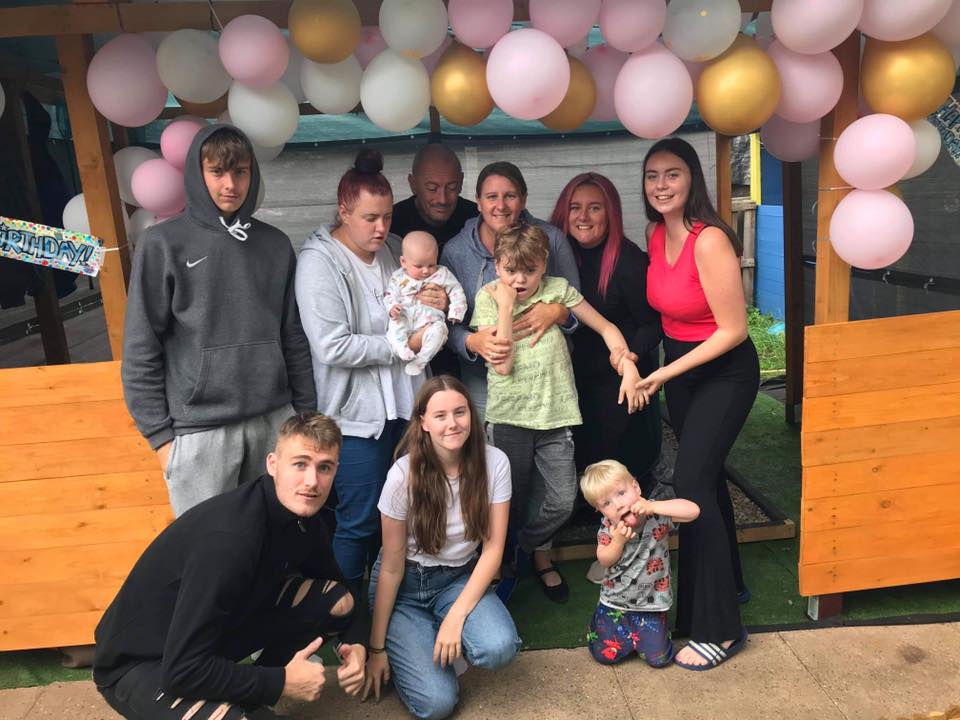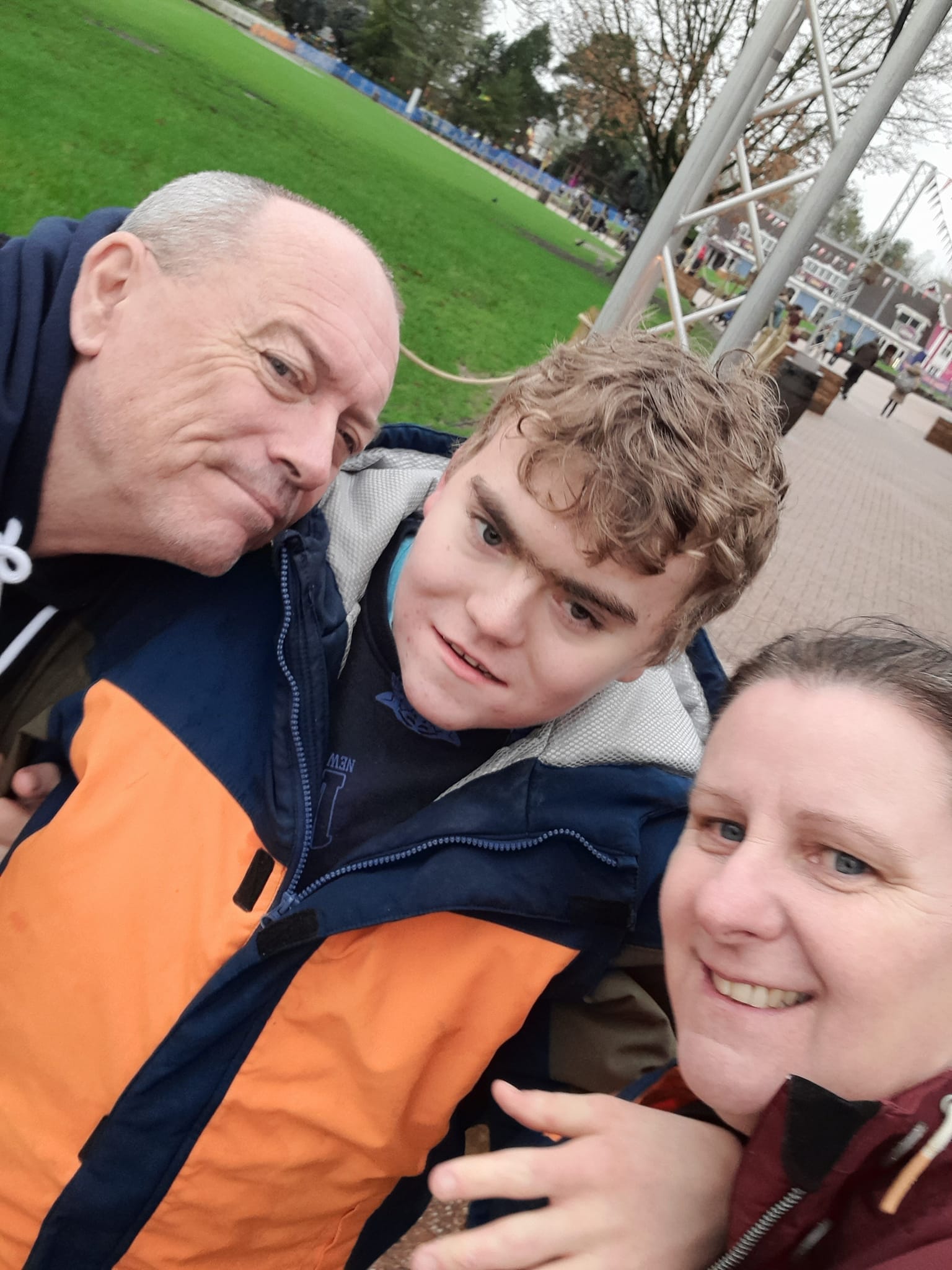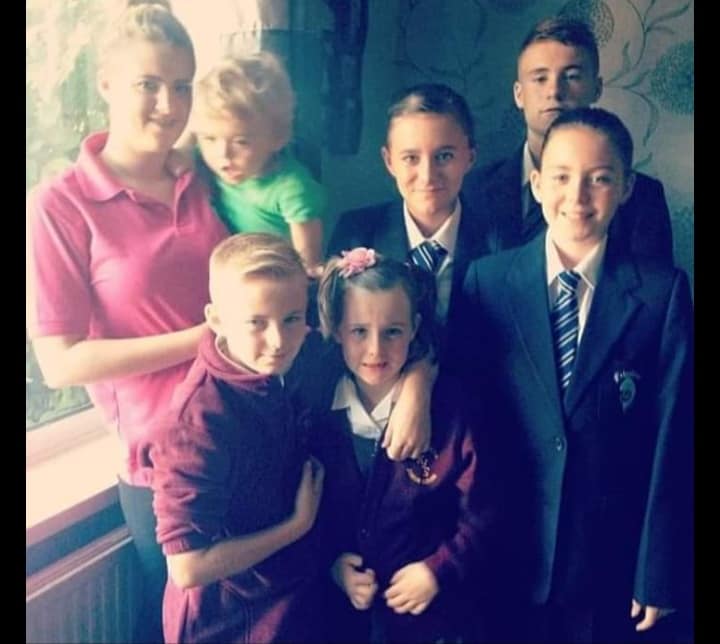As part of Carers Week (10th – 16th June), we share the story of Laurie Grainger and her family. Laurie and her husband, Des, have dedicated their lives to caring for their youngest son, Jude, who was diagnosed with Smith-Magenis syndrome (SMS) at the age of 18 months. The Grainger family, including Jude’s siblings Shaleigh (28), Keaton (26), Kaidey (24), Miah (22), Breeyen (20), Neive (18), and Jude (15), have all played significant roles in his care. This interview aims to raise awareness of the challenges and triumphs of unpaid carers, highlighting the Grainger family’s commitment and resilience.

What was your journey to getting a diagnosis of SMS for Jude?
Jude was born in October 2008, seven weeks premature. It was a difficult time, with many issues, including feeding difficulties, and he was a very sleepy baby. As he grew, he experienced delays in many areas, but these were initially attributed to his prematurity. Having had two other babies who were six weeks premature, I knew something wasn’t right. It took numerous hospital admissions before anyone listened. Initially, medical professionals suspected cerebral palsy due to his epilepsy and white matter damage revealed in an early brain scan. It wasn’t until a neurologist referred Jude for genetic testing that we received the diagnosis of Smith-Magenis syndrome. The information provided was minimal—just a printout with very little detail.
When you received Jude’s diagnosis of SMS, what were your first steps to find information and seek help and support?
Our paediatrician had never heard of SMS and promised to research it and get back to us. Meanwhile, we turned to Google, which only worsened our fears as all the information we found was negative. The only conditions we were familiar with were Down’s syndrome and autism. The diagnosis felt overwhelming and scary, but there was also a sense of relief in knowing I wasn’t imagining things.
We then found The SMS Foundation, which became our primary source of information. Speaking with the Chairperson, Lisa, provided some reassurance. A month later, we attended our first SMS conference, which was incredibly helpful.
Did you get any help or support from professionals on benefits or specific medical advice at that time?
Jude was already receiving physiotherapy and was under the care of an Early Years Team. They helped us with the Disability Living Allowance (DLA) and Carer’s Allowance forms. Jude was also referred to an educational psychologist for an early statement at two years old, which was the only time he saw an educational psychologist.
Jude attended a mainstream nursery where the support was fantastic. However, transitioning to mainstream primary school proved challenging. Jude’s frequent illnesses meant he spent more time in the hospital than at school.
After he’d been discharged, Social Services would refer him for home tutoring, but the referral process was slow, and often he had returned to school before the arrangements were in place.
What were your main challenges as carers?
Des and I were both working while juggling Jude’s care needs during his early years in nursery and school. However, when Jude was in Year 2, he was hospitalised for three months due to an unknown illness. The strain of managing work calls from the hospital and sheer exhaustion made me realise I couldn’t continue both roles. I resigned from my job to become a full-time carer for Jude. Around this time, it became clear that the school couldn’t accommodate Jude’s complex needs, leading us to decide on homeschooling.

When Jude hit puberty, managing his care alone became overwhelming, prompting us to reduce Des’s work hours. With most of our children still in full-time education, they were not able to be around as much to help. Balancing Des’s part-time job with the benefits system was incredibly challenging. The Department for Work and Pensions (DWP) complicated things further by threatening to stop our Universal Credit unless Des attended work-related courses, which would take him away from helping with Jude’s care—the very reason he reduced his hours. The stress was horrendous during this period.
All this coincided with the time leading up to Jude’s spinal surgery, intensifying our worries about finances since we both needed to care for Jude around the clock. The pressure for Des to return to full-time work mounted, leaving me to handle Jude’s complex needs alone.
In my search for solutions, I discovered ‘Regulation 89(b)’. This provision acknowledges the unique circumstances of households where multiple individuals are involved in caregiving but only one can claim Carer’s Allowance. It provides some flexibility for the second carer to engage in employment without risking their eligibility for Universal Credit or facing the same work requirements as the primary carer. To prove our exemption, we needed a medical letter from Jude’s medical team. Astonishingly, the Job Centre personnel handling our case were unaware of Regulation 89(b) and doubted its existence. It took six weeks and several escalations to resolve the issue.
Do you receive any respite or other support as a family?
For a time, we received two hours of respite per week through Direct Payments. However, in 2023, Jude sustained a spinal injury following surgery, requiring weeks of hospitalisation and intensive physiotherapy. Despite support from the spinal injury team, the local authority refused our requests for additional respite, claiming Jude did not meet their criteria. This lack of support has been a significant challenge, as Jude has no personal budget and no other support for his homeschooling needs.
How have Jude’s brothers and sisters helped with his care over the years?

Jude’s brothers and sisters have consistently and willingly taken on the responsibility of his care, without ever being asked or expected to do so. They have structured their lives around him, offering their time and adjusting their work and university schedules to help out in the afternoons. Their love and dedication for Jude make me immensely proud of them. Additionally, our children’s partners now play an important role and have shown enormous love and commitment to Jude’s health and wellbeing.
Finally, if there was one thing you could say to the Government or ask for to support Carers, what would it be?
I would ask for more support in hospitals, particularly the establishment of learning disability teams. The lack of understanding of Jude’s individual needs has led to refusals of vital care. He couldn’t access necessary physiotherapy at Stoke Mandeville Hospital because they couldn’t accommodate both parents staying with him. We lack a community learning disability nurse, and communication with healthcare providers is poor. Our disabled children deserve the same level of care as any other child, yet they are often denied this due to funding issues. This situation is disgraceful and one of my biggest frustrations, causing me countless tears.
The Grainger family’s story highlights the immense challenges and dedication involved in caregiving. Their journey underscores the need for better support systems and recognition of the vital role carers play in our communities.

 Mount Cook Weekend – Schedule of Activities
Mount Cook Weekend – Schedule of Activities